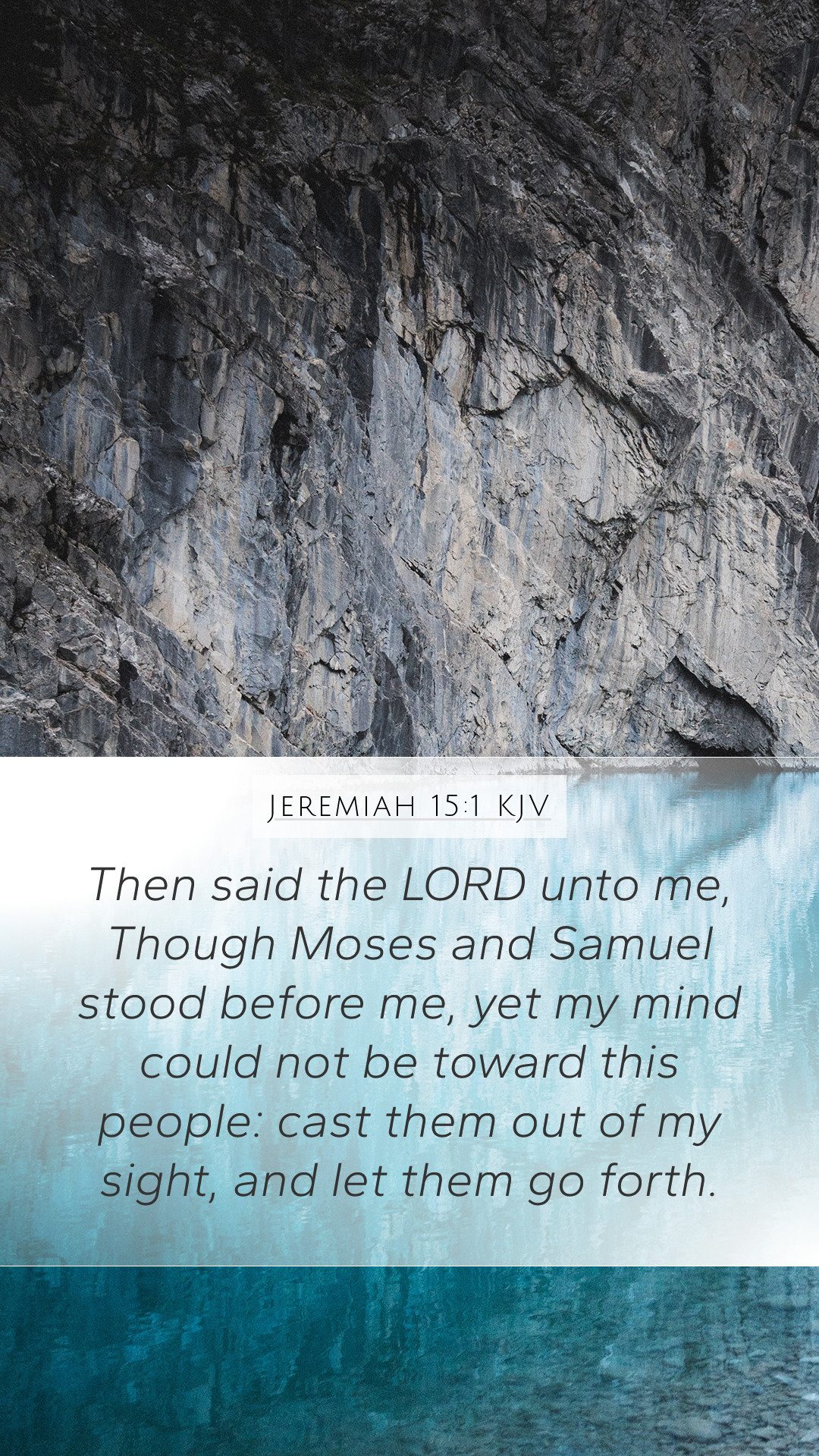Understanding Jeremiah 15:1 - A Comprehensive Commentary
Jeremiah 15:1 presents a profound interaction between God and the prophet during a time of deep distress and judgment. This verse is crucial for those seeking Bible verse meanings and Bible verse interpretations. Here we delve into its significance using insights from trusted public domain commentaries by Matthew Henry, Albert Barnes, and Adam Clarke.
Verse Text
Jeremiah 15:1 (KJV): “Then said the Lord unto me, Though Moses and Samuel stood before me, yet my mind could not be toward this people: cast them out of my sight, and let them go forth.”
Contextual Background
The context of this verse is set during a time of impending judgment against Judah, where the sins of the people have provoked God's anger. Understanding the historical background is crucial for a meaningful Bible study.
Commentary Insights
-
Matthew Henry:
Henry notes that the mention of Moses and Samuel emphasizes the significance of intercessors before God. Despite their righteous advocacy, God’s judgment was unavoidable due to the persistent unfaithfulness of the people. This reflects the gravity of sin that can lead to divine rejection.
-
Albert Barnes:
Barnes highlights that the phrase "my mind could not be toward this people" suggests that God’s heart had turned away from Judah due to their continued rebellion. This underscores the concept that there exists a point where divine patience runs out, affirming the importance of faithful adherence to God's commands.
-
Adam Clarke:
Clarke points out that God’s use of 'casting out' indicates a decisive action against sin. The emphasis on two renowned intercessors serves to illustrate the severity of the people's state, reaffirming that even the most loyal supplicants can’t alter God’s sovereign will when judgment is warranted.
Theological Implications
This verse illustrates profound theological truths that apply to contemporary audiences. The rejection of the people showcases God’s holiness and justice, while also highlighting the limits of intercession in the face of persistent sin.
- Sovereignty of God: God’s decisions are not swayed by human intercession when justice demands action.
- The Role of Intercessors: This verse invites further discussion on the role of prayer and intercessory figures in the lives of believers and how their influence interacts with divine plans.
- Grace and Judgment: The balance between God’s grace, as demonstrated through previous intercessors, and His righteous judgment offers rich material for biblical exegesis.
Application for Believers
Those engaged in Bible study groups or online Bible study can draw from this verse practical lessons about the nature of sin and the call to repentance. Application of Bible verse explanations reveals how vital it is for believers to remain vigilant and faithful.
Key Takeaways:
- Embrace repentance and the need for personal righteousness.
- Understand the serious consequences of persistent unfaithfulness.
- Value the significance of prayer and intercession, acknowledging their limitations in the context of divine judgment.
Cross References
This verse relates closely to several passages, providing more depth and understanding:
- Exodus 32:11-14: Moses intercedes for Israel after the golden calf incident.
- 1 Samuel 7:9: Samuel’s intercession during the Philistine threat.
- Ezekiel 14:14: God mentions Noah, Daniel, and Job as examples of righteous intercessors.
Conclusion
Jeremiah 15:1 serves as a critical reminder of God’s holiness, the seriousness of unrepentant sin, and the profound implications for intercession. For anyone seeking understanding Scripture, a deep engagement with this verse can provide insights applicable to modern faith challenges and foster spiritual growth within Bible study materials.


